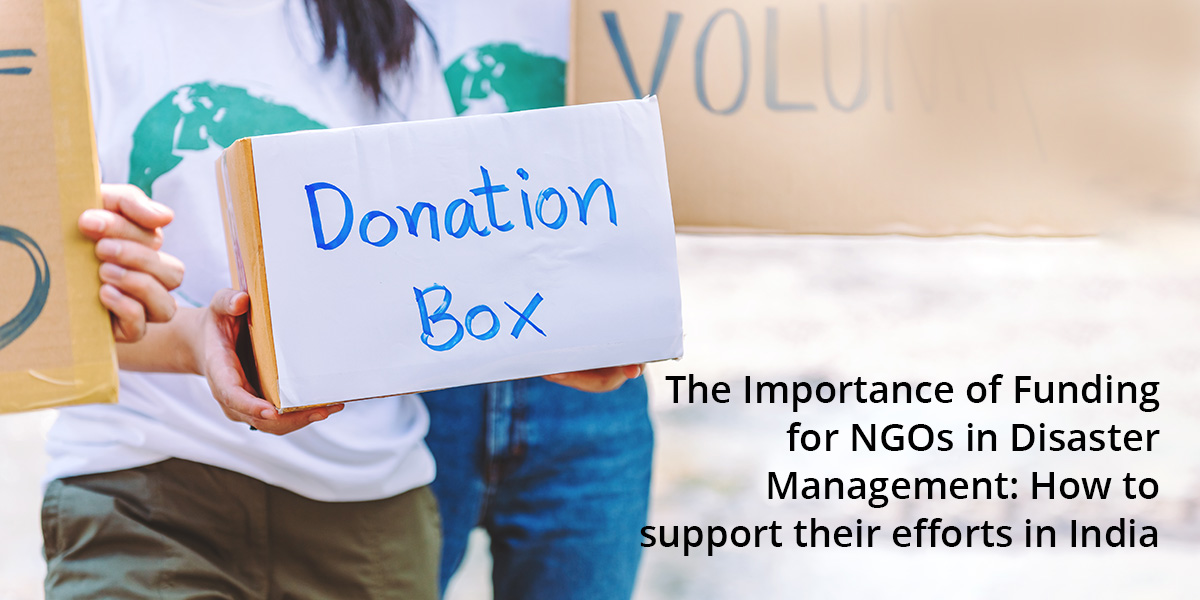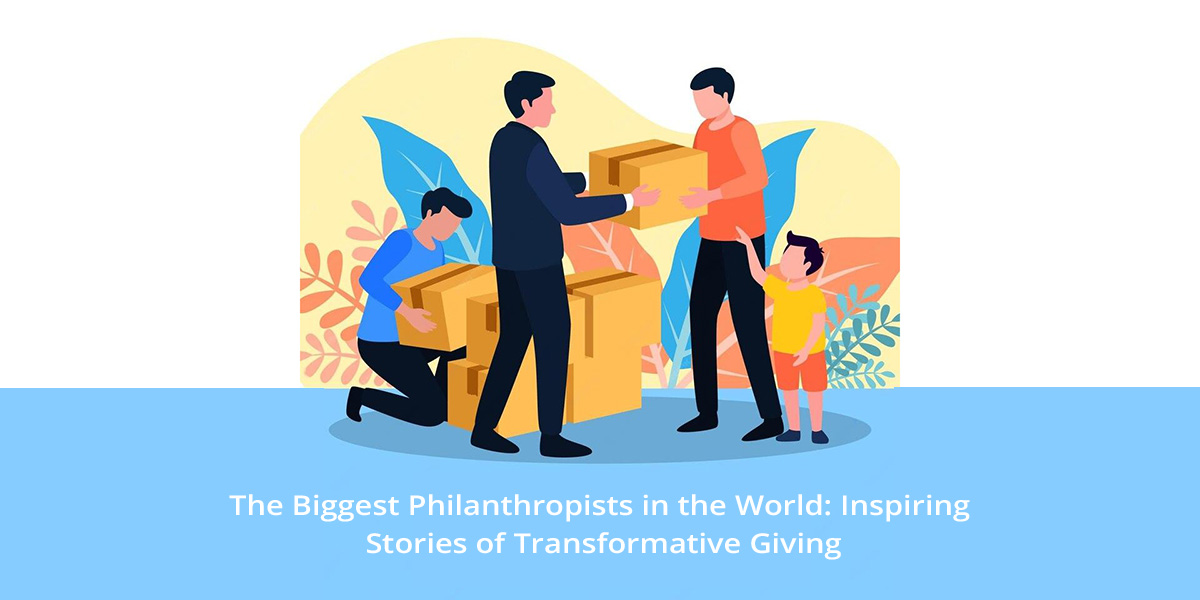Table of Contents
The Role of NGOs in Disaster Management
Disaster Management is defined as the process of effective preparation and response of disasters. When we think of disasters, we usually tend to think about natural or human caused disasters. Casting a wider net would categorize disasters as tangible or intangible disasters. Tangible disasters would mean natural calamities, famine, climate change, poverty(Economic Breakdown) etc while intangible disasters would be, trauma therapy, family raising, etc. NGO’s cater to both these forms of disasters.
The Importance of Funding for NGOs in Disaster Management
NGOs require a huge amount of resources and man-power in order to be able to prepare for and respond to these disasters. The cost of responding to disasters is growing exponentially; Owing to a combination of increase in population and subsequently an increase in human caused climate change. The cost of resources itself can trump NGO budgets and hamper operations at large.
While the government does provide funding for NGOs; they come with their own set of limitations. A government grant is usually offered to established organizations and comes with tons of terms and conditions including reporting requirements, scheduled and non-scheduled check-ins, tracking of funds etc and the cherry on top of the cake is the time these grants take to get approved.
Hence the need for private funding. Private funding is beneficial for NGOs on the grounds that it is not a loan and hence is not subject to reimbursement. Private funding is largely how NGOs stay afloat and are also approved and processed faster than a government grant.
Challenges Faced By NGOs In Securing Funding For Disaster Management
NGOs at large find themselves struggling to find sufficient and continuous funding. Funding is a major component for the running of operations and gaining access to appropriate donors is a challenge in itself. Top it off with a dash of competition and the whole task becomes herculean. The NGO to Donor percentage is abysmal and the competition kills any chance of Funding.
The lack of funding can also be attributed to the lack of awareness amongst NGOs in terms of funding opportunities. Many portals of funding are overlooked; for instance, online donations, corporate funding etc. Many NGOs lack the capacity to apply for funding. This lack can stem from the lack of establishment, registration and legitimacy of the NGO. As well as the growing lack of trust amongst donors towards charitable foundations.
How To Support The Efforts Of Ngos In Disaster Management
Disaster Management is a herculean operation to manage and we as individuals may lack the monetary means to assist such operations. However on the upside there are actions we can take to push the needle forward and make a difference. A good start is, donations. While even the smallest amount of donation is appreciated. Donations need not be monetary; Shoes, Clothes, Utensils, Linens and many more can be donated to reputable NGOs. Another means of assistance would be volunteer time, manpower is a scarcity and volunteering time and skills is the best most hands on approach to donations. Another means of support would be to raise awareness about the lack of funding for NGOs and their struggle to stay afloat. Word of mouth is the oldest most effective form of advertisement and in this case awareness. Advocating for NGO funding could mean the difference between life and death.
Conclusion
In conclusion Disasters are multifaceted; and disaster response has various stages for instance, disaster response, mitigation, disaster reduction and recovery as well as coordination. All of which NGOs play a significant role in; and for these NGOs to be able to facilitate disaster management not only with a relief centric approach but also a multi dimensional approach. They require huge amounts of resources and manpower at their disposal. Both of which require a substantial monetary backbone. This monetary backbone is what most NGOs struggle to find due to the lack of trust between non profit organizations and their prospective donors in addition to the growing competition amongst the NGOs.
While we as common folk wouldn’t be able to facilitate and eradicate these shortcomings individually. Coming together to make small allowances in numbers would definitely help address these shortcomings. Allowances like small monetary donations or donations in the form of clothing, utensils, linens etc. Another area in which we can make a relevant contribution would be by raising awareness and advocating for the increase of funding for NGOs.
The reason NGOs require the amount of funding that they do is because NGOs as mentioned above are multifaceted. What that means is that endeavors include multiple scientific, engineering, financial and social processes. Scientific Processes carry out innovative basic research in the natural, biological and social sciences and the humanities. They work towards planet preservation through science. Research impacting the world’s economy “Regulation of International Financial Markets” etc. Engineering processes include working towards civil development for instance electrical engineering for local villages, water motor designs and installation etc.
Social processes include assistance in areas of health, education, awareness with regards to personal hygiene, shelter etc. NGOs are also involved in disaster response at various stages. Thus the role of the NGO’s during a disaster of any kind is to have a fast response and to try and save as many lives as they can with the given funds.






